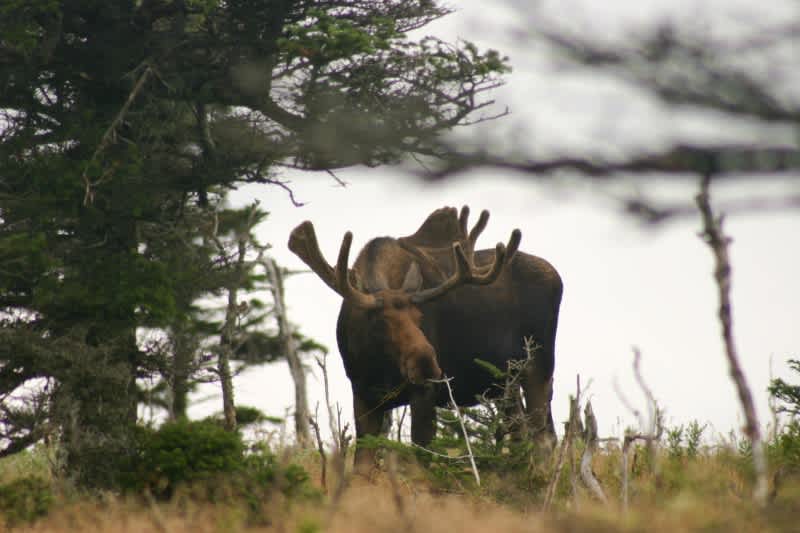Future of Moose in New Hampshire Uncertain
Marty Basch 09.04.13

With hunting season approaching, the state of New Hampshire’s dwindling moose population is in the crosshairs.
Currently there are 4,400 moose in the “Live Free or Die” state, down from a peak of 7,600 in 1996, according to New Hampshire Fish and Game Department moose biologist Kristin Rines.
Winter tick, a parasite that can attach itself to a moose and suck its blood, and other factors are posing serious threats to the Granite State icon.
Those dangers include brainworm (a parasite deer transmit but are impervious to) and changes in the weather.
“There is no simple answer as to why this is happening,” said Rines in comments released by Fish and Game. “In general, it appears that as our weather changes, with winters growing shorter and temperatures on the rise, moose mortality increases and reproduction decreases. Where the snow and cold of winter continue to last from November through April, moose seem to continue to do well. The affect of other factors on moose may also be changing with the climate.”
According to Rines, initially the moose decline began because the people requested it, wanting a way to decrease the number of moose-vehicle collisions. So, an increased amount of hunter permits were offered to thin the herd.
With its moose-crossing warnings posted on roads throughout the state, New Hampshire now has about 170 such accidents annually, down from above 200 on average per year between 1996 and 2002.
As reports of fewer moose grow, particularly in the central and northern parts of the state, action is being taken in the form of research.
In July, a nearly $700,000 study financed with federal Wildlife Restoration funds and managed by New Hampshire Fish and Game and the University of New Hampshire got the go-ahead to track about 100 moose to get a handle on the population.
“Over a two-year period, we will place radio collars on 80 to 90 adult moose cows and calves,” she said. ” A helicopter wildlife crew will capture and collar the animals. We will track the collared animals for four years, monitoring them for as long as the collars keep transmitting. We’ll be looking at how long the individuals live; and when they die, we’ll try to get there as soon as possible to determine cause of death. This research will help us determine what the mortality rate and causes are at this time. It seems to have increased since our last mortality research project.”
She said they want to know if mortality is being caused by winter tick or other factors. These answers will inform future management decisions.
New Hampshire isn’t the only state with decreasing moose populations. Minnesota halted its moose hunting season. Southern Maine is seeing significant winter tick infestations while in Canada, Nova Scotia has seen dramatic reductions in some moose populations.
What does this mean for the New Hampshire moose hunt?
“We don’t know what the future holds, but we are concerned,” she said. “We know that moose numbers are below goal in several regions, and moose weights and reproduction are also down in some regions. In response, we’ve been dropping permit numbers since 2007. We’ve gone from 675 permits to 275 permits issued in 2012-2013.”
She said they still have this fall’s moose hunt and observation data to review before recommendations are made.
“We will continue to monitor our moose population closely; if it keeps declining, we will reduce permits accordingly in an effort to maintain moose on our landscape,” she said.
Hunters aren’t the only ones concerned. So are those in the tourism industry.
The Washington Post says moose-watching tours generate $115 million yearly in New Hampshire, but operators say current tours last hours longer than in past years as they must search extensively to spot a single moose.
“The fact of the matter is that we don’t know what the future holds, but we’re hopeful that a combination of research and management efforts will allow us to do all we can to secure the future of New Hampshire’s invaluable moose resources,” she said.

